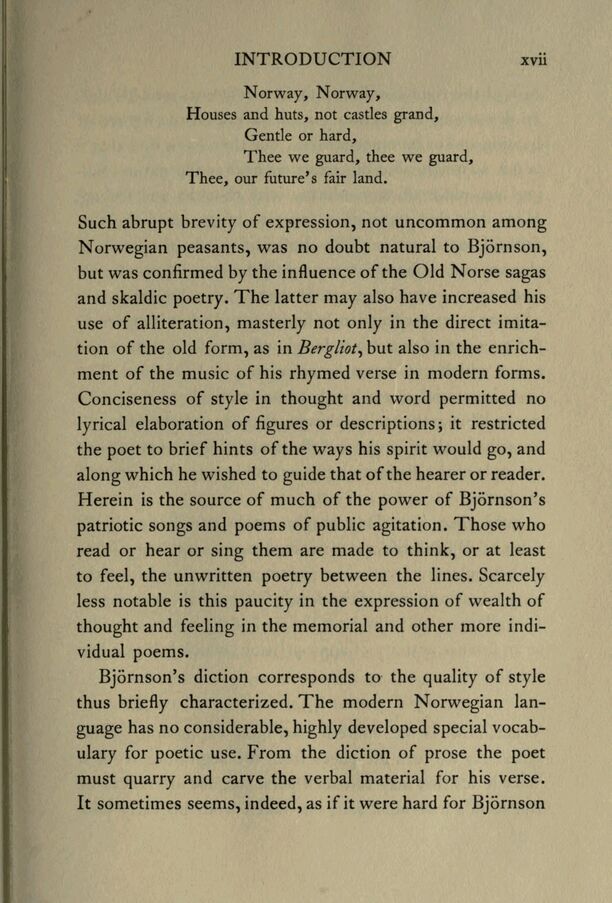
Full resolution (JPEG) - On this page / på denna sida - Sidor ...

<< prev. page << föreg. sida << >> nästa sida >> next page >>
Below is the raw OCR text
from the above scanned image.
Do you see an error? Proofread the page now!
Här nedan syns maskintolkade texten från faksimilbilden ovan.
Ser du något fel? Korrekturläs sidan nu!
This page has never been proofread. / Denna sida har aldrig korrekturlästs.
INTRODUCTION xvii
Norway, Norway,
Houses and huts, not castles grand,
Gentle or hard,
Thee we guard, thee we guard,
Thee, our future’s fair land.
Such abrupt brevity of expression, not uncommon among
Norwegian peasants, was no doubt natural to Bjornson,
but was confirmed by the influence of the Old Norse sagas
and skaldic poetry. The latter may also have increased his
use of alliteration, masterly not only in the direct imita-
tion of the old form, as in Berg/iot, but also in the enrich-
ment of the music of his rhymed verse in modern forms.
Conciseness of style in thought and word permitted no
lyrical elaboration of figures or descriptions; it restricted
the poet to brief hints of the ways his spirit would go, and
along which he wished to guide that of the hearer or reader.
Herein is the source of much of the power of Bjornson’s
patriotic songs and poems of public agitation. Those who
read or hear or sing them are made to think, or at least
to feel, the unwritten poetry between the lines. Scarcely
less notable is this paucity in the expression of wealth of
thought and feeling in the memorial and other more indi-
vidual poems.
Bjornson’s diction corresponds to the quality of style
thus briefly characterized. The modern Norwegian lan-
guage has no considerable, highly developed special vocab-
ulary for poetic use. From the diction of prose the poet
must quarry and carve the verbal material for his verse.
It sometimes seems, indeed, as if it were hard for Bjornson
<< prev. page << föreg. sida << >> nästa sida >> next page >>